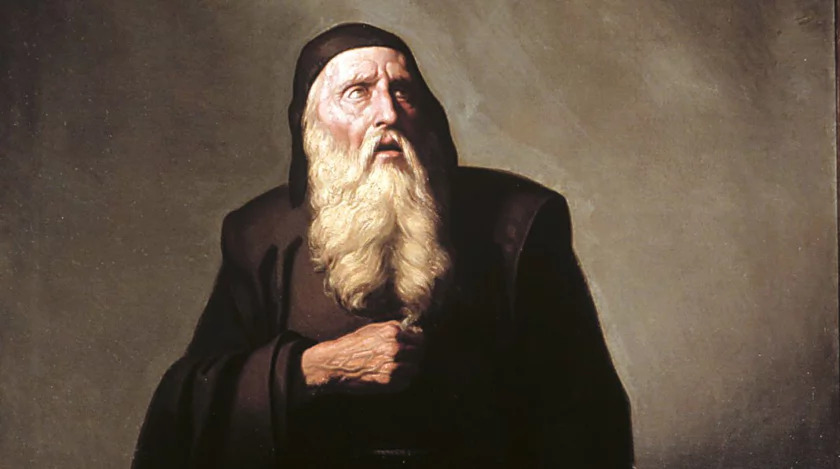The Man Who Wrote Everything

He’s not, strictly speaking, a saint, only a blessed, but Ramon Llull (1232-1316) deserves a place in any list of holy men. However, the Fool of Love was for the first 30 years of his life fool to an altogether more earthly sort of love. Llull was attached to the household of the future James II of Majorca and he eventually became its seneschal. Marriage and two children did nothing to cool his ardent pursuit of the court’s women, to whom he composed many songs in the romantic troubadour style of the period.
‘The more apt I found myself to sin the more I allowed my nature to obey the dictates of my body,’ he wrote later. Not even the shock of one of his amours yielding to his advances, only to reveal breasts ravaged by cancer, could stop his philandering.
But then, in the summer of 1263, while Ramon was busy writing another song in honour of a new love, he looked up from his work to see ‘our Lord Jesus Christ hanging upon the Cross’. Llull, his poetic flow seriously interrupted, escaped to his bed, no doubt assuming that a good night’s sleep would clear his mind of such troublesome visions. But when he next returned to songwriting, the figure returned and a terrified Llull again retired to bed. Ramon was no dilettante libertine and three more times he returned to his love song, only to be faced with the same figure.
Llull decided that these must be authentic visions rather than mental phantoms and he set himself to working out what they meant. In the end he decided that ‘our Lord God Jesus Christ desired none other thing than that he should wholly abandon the world and devote himself to His service’. This he decided to do by trying to convert the unbelievers (in Ramon’s world, this meant chiefly Muslims), by writing a book, ‘the best in the world, against the errors of unbelievers’, and setting up colleges to teach Arabic to missionaries.
Ramon then sold his possessions, though keeping some back to support his wife and children, distributed the proceeds to the poor and spent the next nine years in study. It was only then, approaching his 40th year, that Llull began the literary and missionary work for which he would become famous, known in later centuries as the Doctor Illuminatus, the Illuminated Doctor, from the series of mystical visions he had on Mount Randa in Majorca.
The sheer scale of his labours almost defy belief. Llull was the author of 265 works in Catalan, Arabic and Latin; the writer of the seminal Catalan novel, Blanquerna; a missionary in almost constant travel between Europe and north Africa; a teacher at the University of Paris when it was the foremost institution of learning in Christendom; a suitor at papal and imperial courts; and the originator of the Art, a systematisation of, well, everything with respect to God’s attributes. This was the book, ‘the best in the world’, that Llull believed showed the truth and which he illustrated through diagrams, tables and, literally, millions of words.
This indefatigable man continued working throughout his long life. At 75 we find him, on a mission to north Africa, ‘beaten with sticks and with fists, and forcibly dragged along by his beard, which was very long, until he was locked in the latrine of the thieves’ jail’. Ramon continued in this vein until the end and whether his death occurred in Tunis, or on a ship sailing back, we can say that few men have ever packed so much life and adventure into the second half of a life.
0 Comments